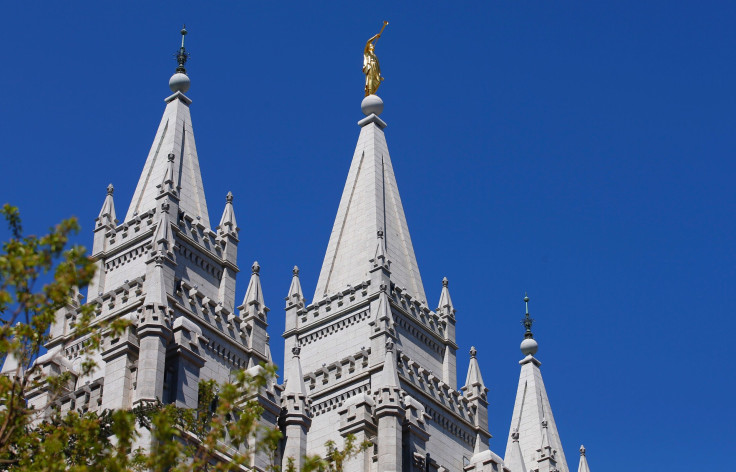Stealing These 5 Mormon Habits Could Boost Your Health

Faithful Mormons follow the health guidelines revealed in the “Word of Wisdom” — a law they believe was given to them by God in 1833. But non-Mormons could also benefit from following some of the health-related teachings of the Church of Jesus Christ of Latter-day Saints.
According to the Washington Post, Mormons tend to live longer, with a life expectancy of more than 86 years for women and 84 years for men in one long-term study — compared to life expectancies in the early 80s for women and mid-70s for men who were not Mormons. Want to live like the Latter-day Saints? These are four of their lifestyle practices.
No Alcohol
Abstaining from alcohol is perhaps the piece of Mormon culture that is most well-known. One Mormon, Mette Ivie Harrison, wrote in the Huffington Post that the prohibition on alcohol includes beer and wine and “some Mormons are even careful about putting any alcohol into food where it will be cooked out.”
Although various researchers have suggested there could be health benefits to alcohol in moderation, those findings are not definitive, while we do know that alcohol can be bad for your liver, among other body parts, and can harm your personal life. When someone drinks too much, the liver is less capable of doing its job of filtering the blood of harmful substances and fighting off infection. Although it is a relatively resilient organ, abusing it over time can lead to irreversible scarring.
Read: Advil vs. Tylenol Liver Damage Risk
Drinking affects others as well, including the unborn. Although the condition is not fully understood, fetal alcohol syndrome can result from drinking alcohol during pregnancy. A child with the condition can have skull malformations, neurological problems, learning disabilities and other issues. Experts say the greatest risk for fetal alcohol syndrome occurs when an expecting mother has at least four drinks at once or more than seven in a week, but there is no established safe level of alcohol consumption for pregnant women.
No Coffee
Mormons don’t drink coffee, tea or other caffeinated beverages, and many also avoid coffee-flavored foods like ice cream. A hot or iced cup of coffee is another example of something that researchers suggest can benefit health, particularly in the brain, but can actually be harmful in large doses. It may give you the boost you need to get through work but too much can cause restlessness, irritability, an upset stomach, a fast heartbeat and nervousness, insomnia, muscle tremors and twitches. Generally the limit is marked at more than four cups a day, but different people have different caffeine tolerances. It can also wreak havoc on the digestive system: Ever wonder why coffee makes you poop?
Read: 3 Health Lessons From Today’s Hunter-Gatherers
No Smoking
The Word of Wisdom prohibits the use of tobacco. While the risks of smoking or chewing tobacco may not have been widely known in 1833, they are well documented now. Smoking has been linked to increased odds of developing various cancers including lung, throat and esophageal; heart attack or other cardiovascular disease; emphysema and stroke. Dipping — using chewing tobacco — can cause cancers of the mouth, tongue, cheek and gum. Smoking kills about 7 million people per year, says the World Health Organization. Just under one million of those deaths are from the effects of second-hand smoke.
Physical Activity
Mormon teachings emphasize being outdoors, breathing in fresh air, and exercise. Unfortunately, while exercise has long been linked to health, most Americans do not meet federal health department guidelines for physical activity, which is set at a minimum of 150 minutes of moderate activity per week. One anthropologist, the University of Arizona’s David Raichlen, says that the human body evolved “within a highly active context,” which is why exercise is so crucial and why sedentary Americans have higher rates of heart disease.
Being outside has its own benefits, including sunshine. Vitamin D, the nutrient our bodies produce when our skin comes in contact with sunlight, has been shown to improve mental health and it has also been suggested that it could slow aging and prevent disease.
Healthful Food
Like many other religious groups, the Latter-day Saints have their own food traditions. They restrict their meat consumption in favor of grains, fruits and vegetables and attempt to stick to locally grown foods, among other practices. NPR notes these rules “closely resemble the tenets of the ‘good food movement’ currently shaping many Americans’ renewed interest in food — i.e., cooking from scratch, emphasizing whole grains, and locally sourced fruits and vegetables.” These ideas “would have been logical for any people settling in the Western territories of 19th-century America,” the type of people who were the first followers of the church.











